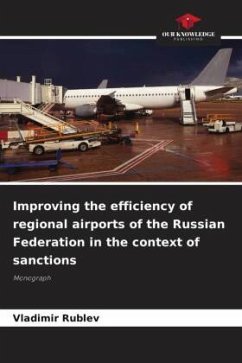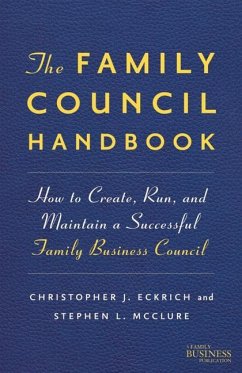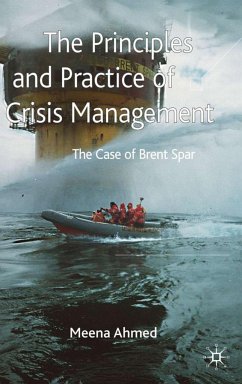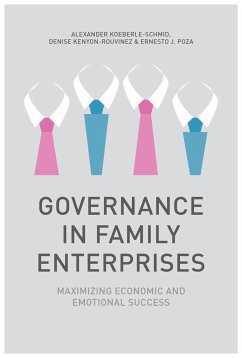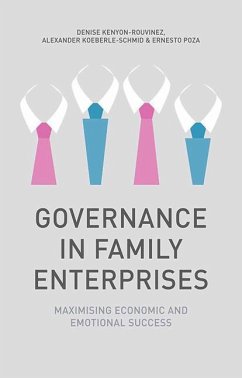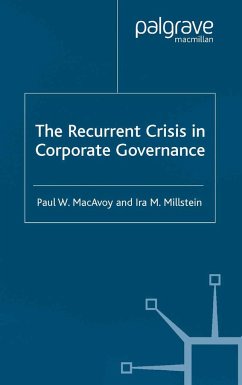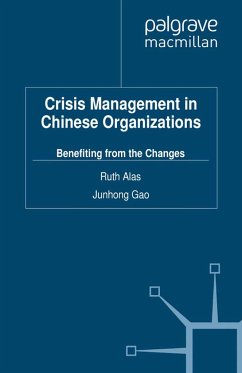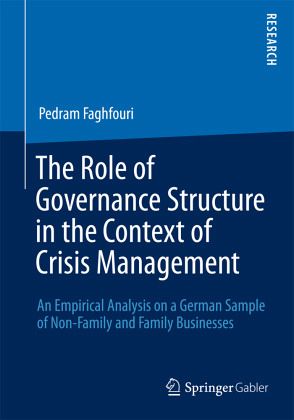
The Role of Governance Structure in the Context of Crisis Management
An Empirical Analysis on a German Sample of Non-Family and Family Businesses

PAYBACK Punkte
19 °P sammeln!
Both practitioners and scholars agree that organizations that are ready to cope with crisis should be better able to manage it than organizations which are not prepared. As, due to their company characteristics, family businesses are exposed to additional causes of crisis beyond the usual causes all companies face, preparing for crisis is of specific importance to them.Based on empirical investigations, Pedram Faghfouri shows that non-family businesses are more likely to prepare for crisis when compared to family businesses. The author's findings let further suggest that the existence of a sup...
Both practitioners and scholars agree that organizations that are ready to cope with crisis should be better able to manage it than organizations which are not prepared. As, due to their company characteristics, family businesses are exposed to additional causes of crisis beyond the usual causes all companies face, preparing for crisis is of specific importance to them.
Based on empirical investigations, Pedram Faghfouri shows that non-family businesses are more likely to prepare for crisis when compared to family businesses. The author's findings let further suggest that the existence of a supervisory board has a positive effect on the degree of crisis readiness of a family business. Moreover, in family businesses with supervisory boards, the involvement of family members in the top management team seems to have a negative effect on the degree of crisis readiness.
Based on empirical investigations, Pedram Faghfouri shows that non-family businesses are more likely to prepare for crisis when compared to family businesses. The author's findings let further suggest that the existence of a supervisory board has a positive effect on the degree of crisis readiness of a family business. Moreover, in family businesses with supervisory boards, the involvement of family members in the top management team seems to have a negative effect on the degree of crisis readiness.






